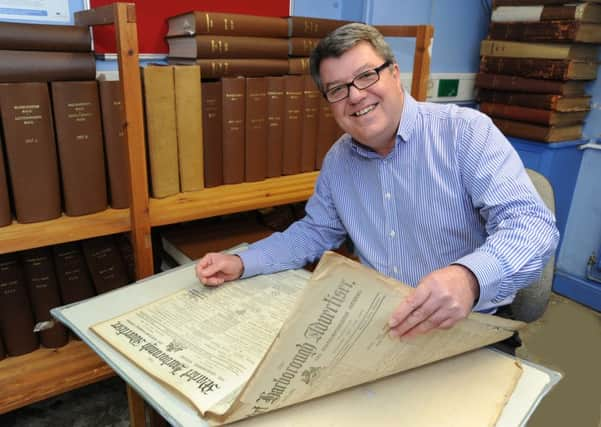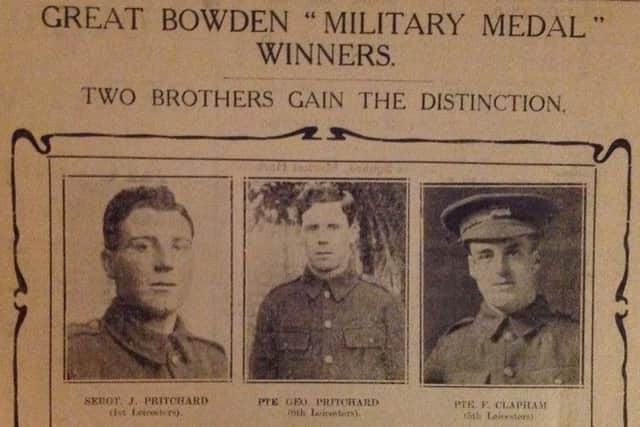JOHN DILLEY'S WWI BLOG: Controversy in politics - how 1916 and 2016 have much in common


People power is behind the great political upheaval of this year and ‘the possibility of an early general election should be kept in mind’.
Oh, how history repeats itself! This opening sentence could apply to the momentous events of 2016 but is in fact from a report in the December 19, 1916, edition of the Market Harborough Advertiser.
Advertisement
Hide AdAdvertisement
Hide AdIt follows last week’s controversial ousting of Herbert Asquith as Prime Minister by his fellow Liberal David Lloyd George.


The Advertiser is very clear about why the events came about.
“The late Government did not come to grief because of a political conspiracy or intrigue as some would have us believe.
“It fell to pieces because it had failed to carry out the will and determination of the people of this country and had consequently lost their confidence and support.”
Advertisement
Hide AdAdvertisement
Hide AdThis might all sound a little familiar to 2016 readers remembering the events of this summer when a stream of political events confounded the commentators. Perhaps all they needed to have done was read the Advertiser’s editorial, even though admittedly it is talking about events amidst the most calamitous conflict the planet has ever witnessed.


“The Government’s hesitancy, indecision and impotence at important crises of the war aroused a general feeling of distrust and alarm and rendered goodwill and good wishes of the country, to which Mr Lloyd George may confidently appeal should he be faced with factious opposition in parliament.”
There are many decisions awaiting today’s Prime Minister Theresa May and one of them according to the murmurings of many political commentators is a snap election – just as they were exactly 100 years ago for Lloyd George.
And the Advertiser is certainly nailing its colours to the mast and stating clearly where it stands. “The possibility of a general election at an early date should be kept in mind by all loyal electors and steps should be taken in every constituency to ensure the return to parliament of those candidates and those only, who are prepared steadfastly to support the new Government in a vigorous policy designed to ensure the victory of the Allies at the possible date.”
Advertisement
Hide AdAdvertisement
Hide AdThe Advertiser’s strong editorial is unusual as it rarely strays into the realms of political posturing. Equally unusual is the treatment of Military Medals being awarded to three local men.
Virtually every week there are a few lines about this kind of recognition as dozens of local men received the awards.
However, on the back page of this week’s edition is the usual short description but this time with a distinctive pictorial treatment never before used by the Advertiser.
There is a large headline which is unusual although not unseen and the three photographs of local men span three columns which is also not a common device.
Advertisement
Hide AdAdvertisement
Hide AdWhat has never been done before is the fancy border which is more akin of a regal proclamation – is this an early sign of a newspaper providing style over substance?
This column is published every Monday by John Dilley on the Newspapers and the Great War website and will continue until the 100 th anniversary of the final armistice in November 2018.
John’s fellow researcher and De Montfort University lecturer David Penman is conducting a similar real-time project with the Ashbourne Telegraph. Check out his Great War Reports.